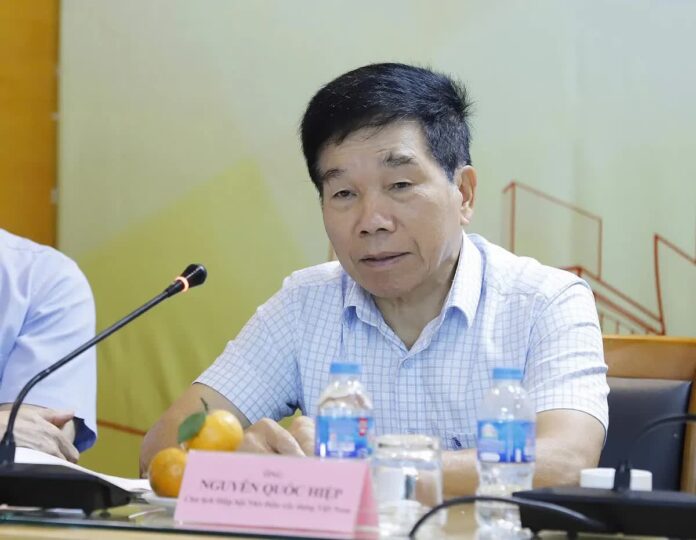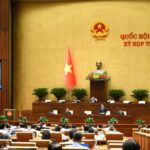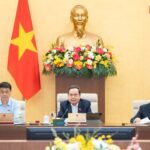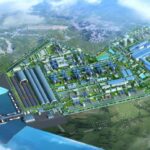On December 19, 2024, the National Assembly officially approved Resolution No. 172/QH15, establishing the investment policy for the high-speed North-South railway. Just under four months later, on April 23, 2025, the government issued Resolution 106/NQ-CP to concretize the plan to implement the National Assembly’s resolution – emphasizing the dual-use nature of the system: serving both passenger and freight transport and ensuring national defense and security when needed.
In a decisive move, the government demanded the completion of contractor selection and contract signing before December 31, 2026 – the expected commencement date of the project. The goal is not only to complete the line over 1,500 km long connecting the two ends of the country but also to establish a large-scale domestic industrial supply chain with the participation of domestic enterprises.
“Great leverage” for Vietnamese enterprises
Speaking at the seminar “High-speed North-South Railway: Opportunities for the Private Sector to Breakthrough in the New Era”, Mr. Nguyen Quoc Hiep, Chairman of the Vietnam Association of Construction Contractors (VACC) stated that the high-speed rail project is considered a “great leverage” for Vietnamese enterprises to enter the big playground.
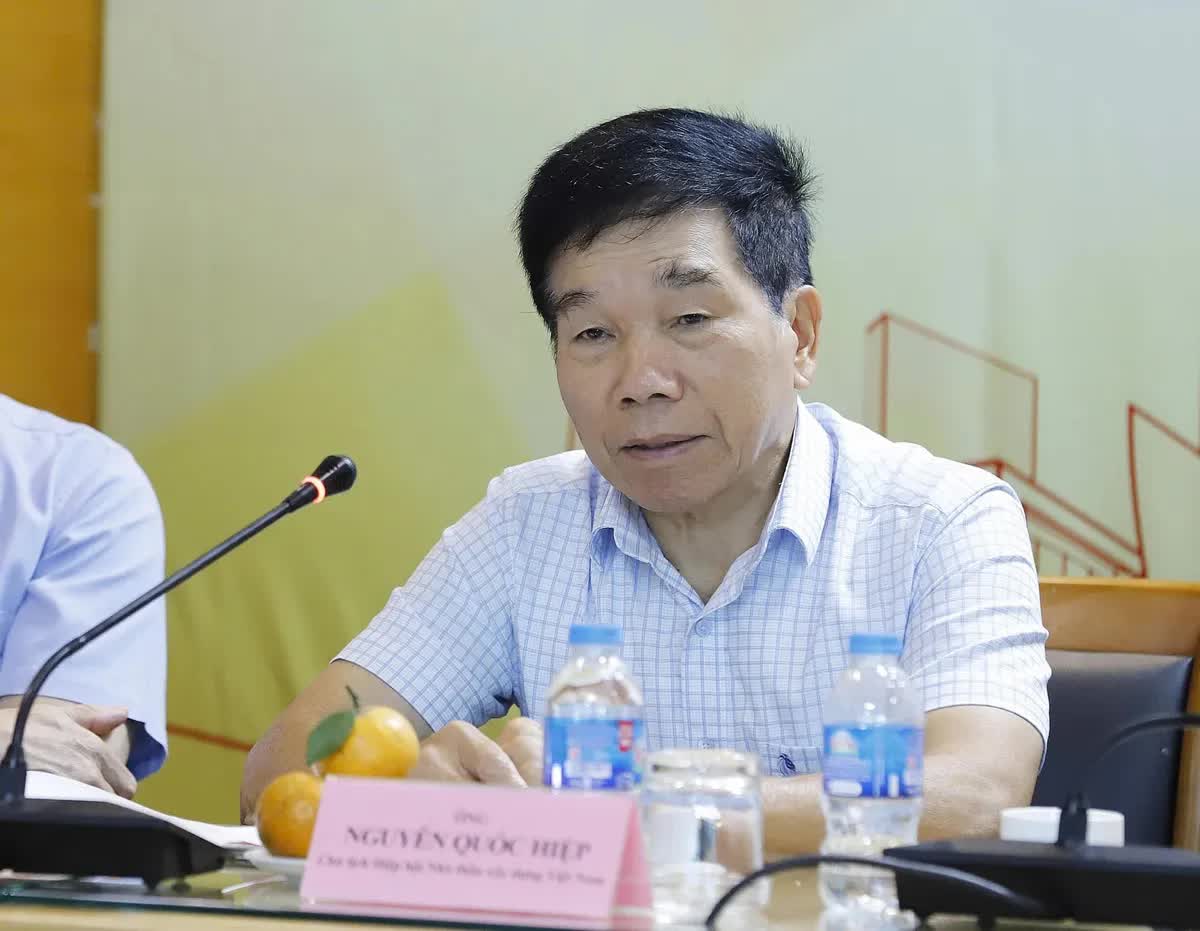
VACC Chairman Nguyen Quoc Hiep. Photo: Pham Hung.
“The construction of the national railway industrial complex is oriented as an industrial park so that all Vietnamese enterprises can produce railway products, supply spare parts for construction, signaling, electricity, and transport. This opening is expected to activate a new cycle of development for Vietnamese enterprises in the fields of construction, supporting industries, and high technology,” said Hiep.
Accordingly, domestic construction enterprises can undertake about 60% of the workload related to infrastructure, in which the entire system of supporting production enterprises can participate in railway-related industries. This is a key national project, which is not only symbolic in terms of infrastructure but also a “strategic test” for the private sector – a component considered an important driving force for the economy.
As an enterprise with more than 10 years of experience in infrastructure construction and the contractor of the Nhon – Hanoi Railway Project, FECON Technical Director, Mr. Ho Duc An shared that for Vietnamese enterprises to develop strongly and participate deeply in the project, the State needs to have a mechanism to designate bidding or place orders for domestic enterprises.
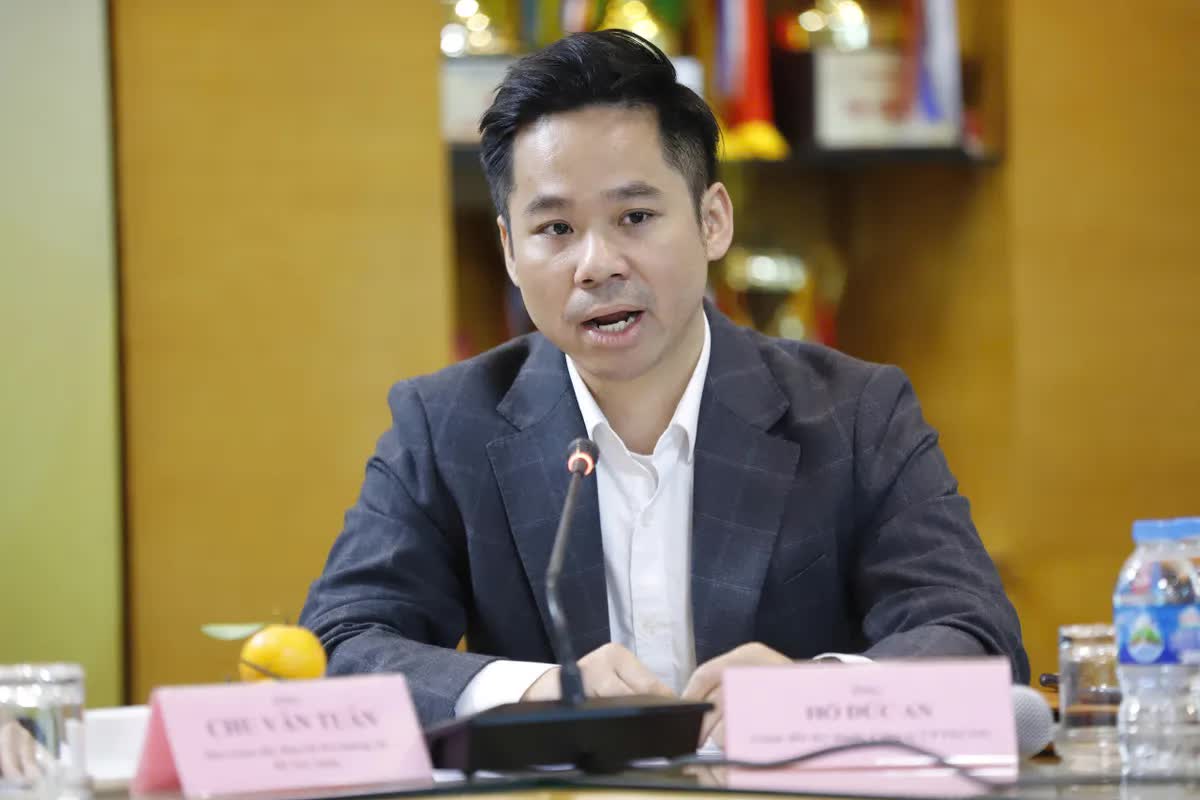
Mr. Ho Duc An – FECON Technical Director. Photo: Pham Hung.
It is necessary to allow enterprises to participate in construction items based on an initial assessment of their capacity and potential. Or, Vietnamese enterprises can establish consortia or joint ventures with foreign units and stipulate the localization rate when transferring technology.
“We expect the Government to create specific favorable conditions for enterprises to encourage investment in technology, production facilities, and human resources, thereby promoting the strong development of the industry in the coming time,” An emphasized.
The State plays the role of a “midwife” in technology transfer
Regarding creating conditions for domestic enterprises to participate in the project, Mr. Chu Van Tuan, Deputy Director of the Railway Project Management Board, said that it would coordinate with the Vietnam Contractors Association in the process of preparing the feasibility study report to assess the capacity, experience, and propose appropriate support mechanisms.
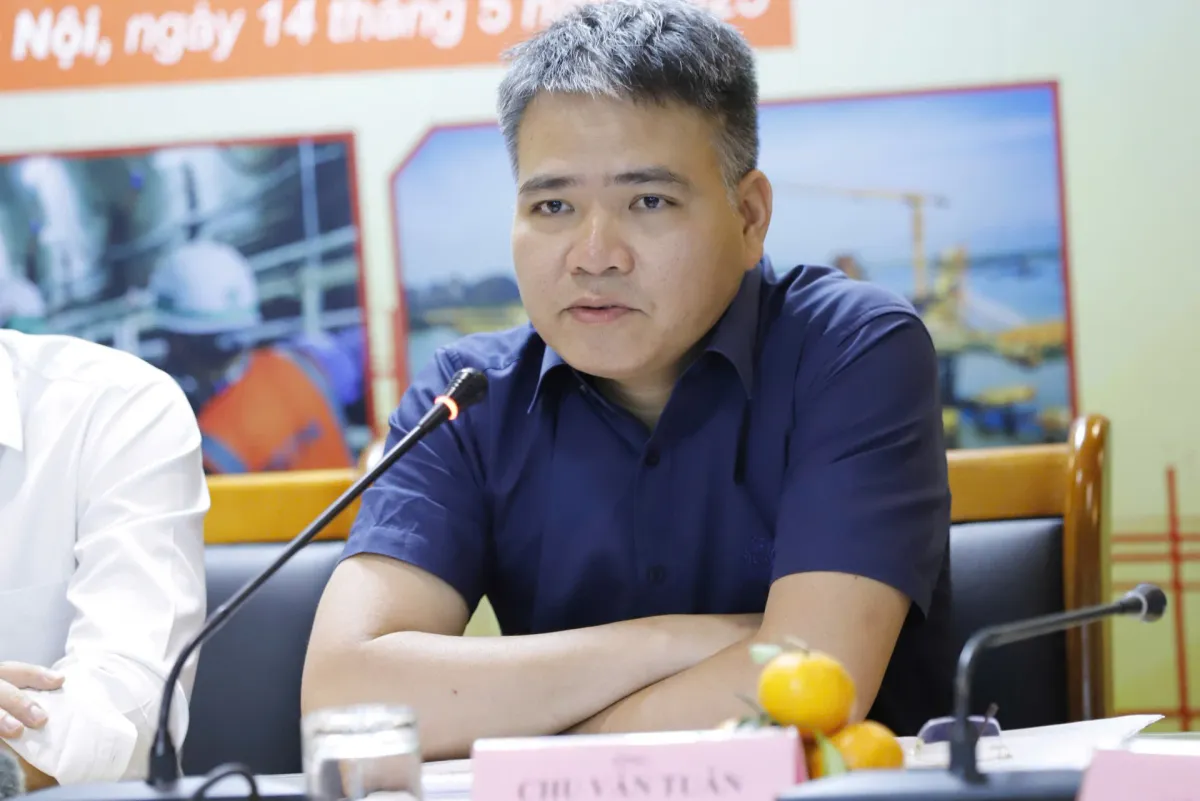
Deputy Director of the Railway Project Management Board (Ministry of Construction), Mr. Chu Van Tuan. Photo: Pham Hung
The consistent guiding spirit is to design a reasonable package structure to help domestic enterprises participate substantively, from the construction phase to the provision of technical services. However, Tuan noted that this is a project with very high requirements for synchronization and technical interoperability – not only in construction but also in operation and maintenance. Therefore, the division of packages must ensure that it opens the door to Vietnamese enterprises while complying with international standards and bidding laws.
“In the request for quotation and invitation to bid documents, we pay special attention to areas where domestic enterprises have strengths such as foundation construction, bridges, tunnels, auxiliary works… so that the private sector can participate, learn and improve their technological capacity in the actual construction process,” Tuan said.
Also at the seminar, Mr. Ta Manh Thang, Deputy Head of International Cooperation and Science and Technology, Vietnam Railways Corporation, said that Vietnamese enterprises still face many limitations in accessing core technology, especially in high-tech items. Therefore, the role of the State is very important in designing technology transfer policies and supporting human resource training in EPC and PPP contracts.
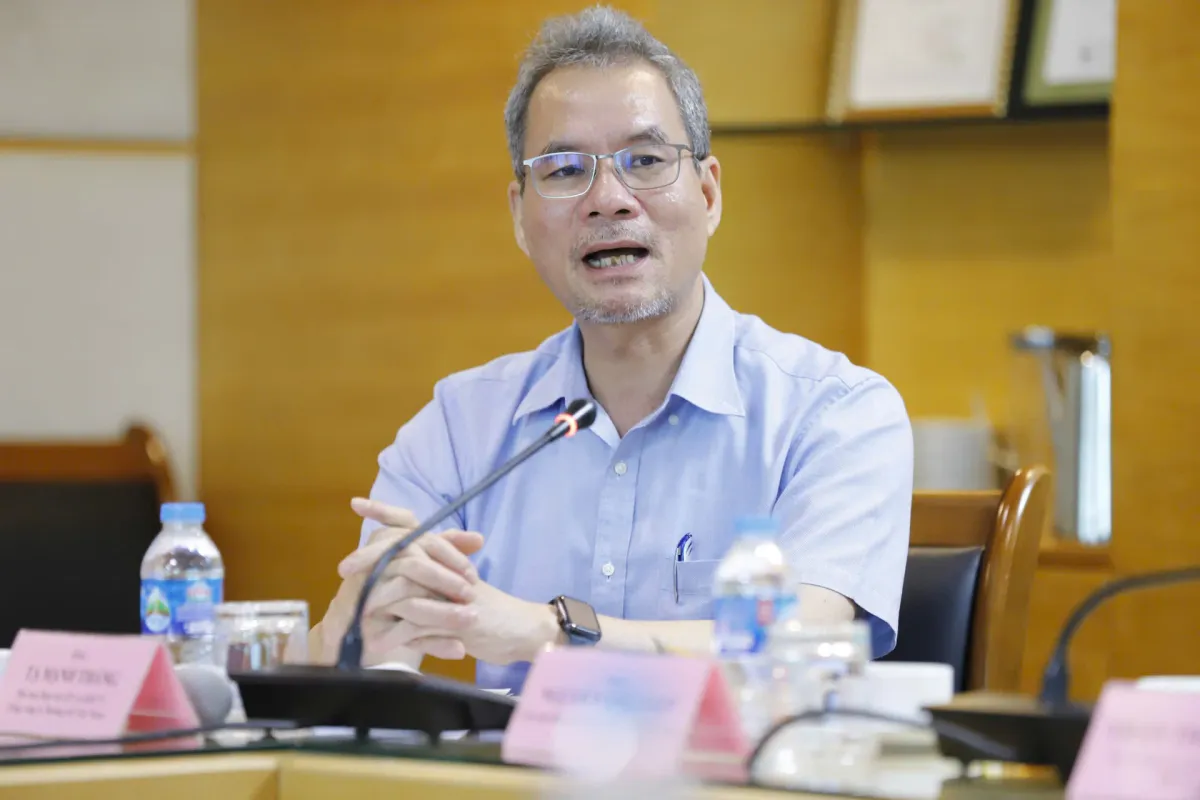
Mr. Ta Manh Thang, Deputy Head of International Cooperation and Science and Technology, Vietnam Railways Corporation. Photo: Pham Hung
“Besides the policy framework, a prerequisite is that private enterprises themselves must clearly define their strengths, not follow the trend. Especially, the linkage between enterprises will be a vital factor in creating comprehensive strength, sustainable development in the field of high-tech infrastructure such as railways,” Thang emphasized.
According to experts, the North-South high-speed railway and the Hanoi – Lao Cai route will require a large number of human resources in the operation phase, estimated at 20,000 people. In the construction phase alone, 70,000 – 80,000 laborers may be needed, positively impacting the labor market and social security.
Vietnam Railways Corporation has developed a separate training plan for this “mega-project,” from upgrading existing human resources to new training and updating advanced techniques. At the same time, the Corporation has signed a training cooperation agreement with the Liuzhou Railway Academy (China) and is promoting similar programs with Japan, Korea, and reputable universities in the country.
The Industry Leaders Take the Hot Seat: Grilling Sessions at the 9th Assembly.
In the upcoming ninth session, members of parliament will be selecting two ministers to question from three key sectors: education and training, finance, and science and technology.
Unlocking the Potential: Unveiling the Vision for Private Sector Growth
“(Chinhphu.vn) – The National Assembly’s Resolution on special mechanisms and policies to promote the private sector is a concise document, marking a new breakthrough in private sector development. The drafting agency has worked diligently to ensure the Resolution’s timely passage by the end of this week.”
High-Speed North-South Railway: A Millennial Opportunity or a Century’s Challenge?
“The North-South High-Speed Rail is a once-in-a-millennium opportunity, but if we’re not prepared, it could also be the challenge of the century for Vietnam’s construction industry as a whole and domestic contractors in particular,” said Mr. Nguyen Quoc Hiep, Chairman of the Vietnam Contractors Association.

